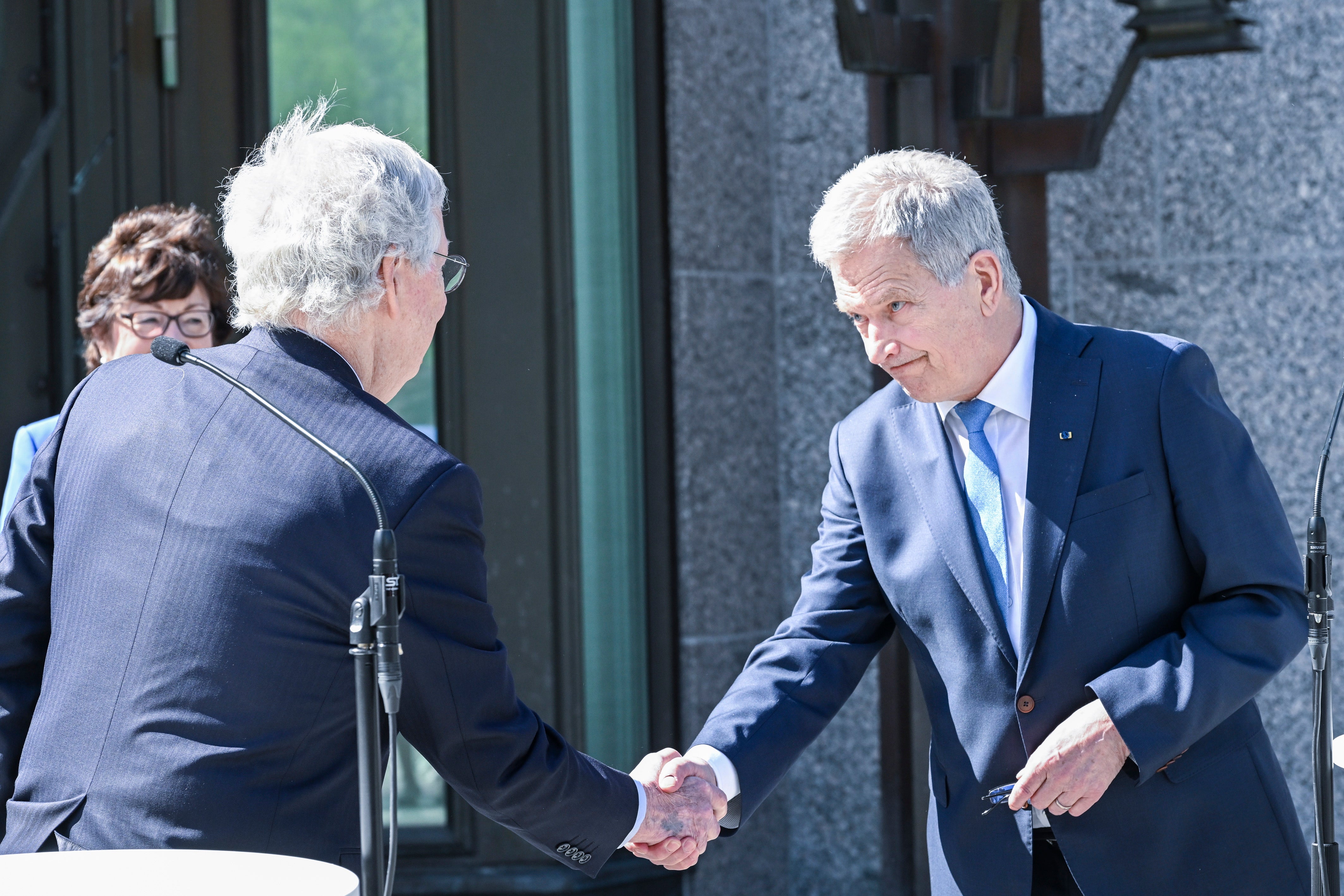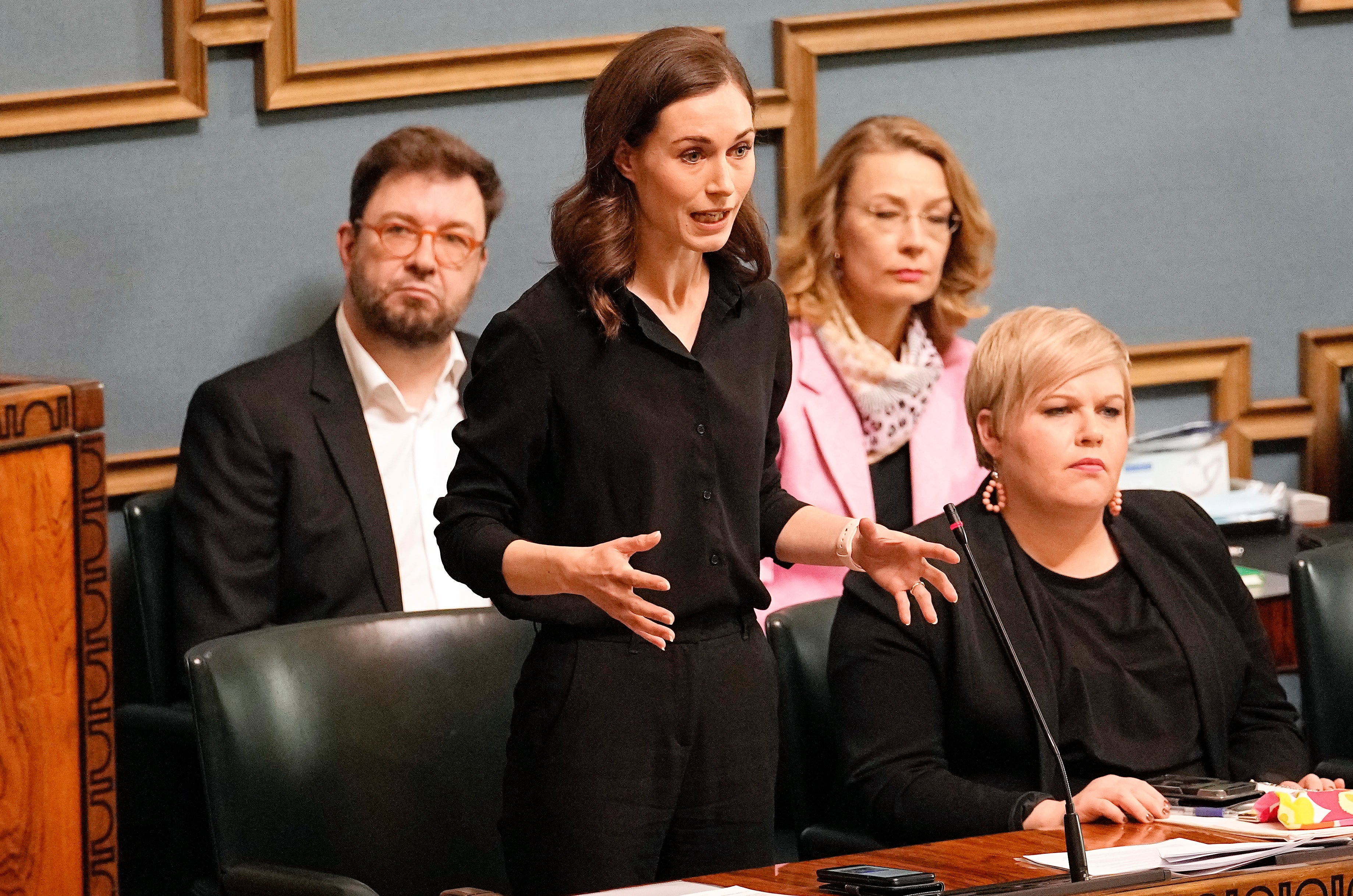Russia calls Finland and Sweden’s Nato moves ‘mistake with far-reaching consequences’
Kremlim says their accession would in no way strengthen Europe’s security architecture
Your support helps us to tell the story
From reproductive rights to climate change to Big Tech, The Independent is on the ground when the story is developing. Whether it's investigating the financials of Elon Musk's pro-Trump PAC or producing our latest documentary, 'The A Word', which shines a light on the American women fighting for reproductive rights, we know how important it is to parse out the facts from the messaging.
At such a critical moment in US history, we need reporters on the ground. Your donation allows us to keep sending journalists to speak to both sides of the story.
The Independent is trusted by Americans across the entire political spectrum. And unlike many other quality news outlets, we choose not to lock Americans out of our reporting and analysis with paywalls. We believe quality journalism should be available to everyone, paid for by those who can afford it.
Your support makes all the difference.Russia on Monday issued a stern rebuke to Finland and Sweden on their decisions to join the Nato military alliance, warning of “far-reaching consequences” for what it described as gross mistakes.
Russian deputy foreign minister Sergei Ryabkov said Finland and Sweden should have no illusions that Moscow will accept their decisions, and added that the “overall level of military tensions” will rise.
“We are making a thorough analysis of the situation. It has certainly changed radically in light of the developments. All this [plans to apply for Nato membership] reflects an absolutely false and distorted perception of what’s going on in the world,” Mr Ryabkov said, according to Tass news agency.
“We find it quite obvious that neither Sweden’s, nor Finland’s security will be enhanced following the decision, while what will be the format of our ensuring our security is a separate issue,” he added.
The Russian diplomat doubled down on the Kremlin’s response to the development after Moscow said it was closely following Finland and Sweden’s bids to join Nato.
Kremlin spokesperson Dmitry Peskov on Monday said Russia was convinced that their accession would in no way strengthen Europe’s security architecture.
The warning from Russia came as Sweden announced that it will be applying for Nato membership, following Finland, which shares a 1,300 km (800 mile) border with Russia.
Both dropped their long-standing opposition to membership of the US-led block, maintained since it was formed in 1949 to counter the military might of the Soviet Union and its allies.

“Europe, Sweden and the Swedish people are living now in a new and dangerous reality,” Swedish prime minister Magdalena Andersson said during a debate in parliament.
Russian leader Vladimir Putin deems the expansion of Nato eastwards as a threat to the security of his country.
Warning the Nato headquarters in Belgium, the US and other Nato nations of the rise in military tensions, Mr Ryabkov lamented that “common sense” was being neglected.
“Brussels, Washington and other Nato capitals should be under no illusion we will simply put up with the fact. So, if the overall level of military tensions rises, there will be less predictability in the sphere,” he said.

“Common sense is being sacrificed to some phantom ideas on what should be done in the situation,” he added. “This will be another gross mistake with far-reaching consequences. But then, alas, that’s the sanity level of those who are making political decisions in corresponding countries.”
Turkey, a Nato member, also criticised Finald and Sweden’s decision to apply for the bloc’s membership, in a surprise to the west.
To justify his position, president Recep Tayyip Erdogan claimed that “Scandinavian countries are guesthouses for terrorist organisations”. Ankara is seeking the repatriation of 33 people across Finland and Sweden with alleged links to Kurdistan Workers Party (PKK) militants or the Muslim cleric Fethullan Gulen, whom Mr Erdogan accuses of orchestrating a 2016 coup attempt.
Such opposition has the potential to thwart any bid from the two nations, since new membership of the alliance hinges on unanimous agreement from all 30 member states.
Last month, one of Mr Putin’s closest allies said that Moscow could deploy nuclear weapons and hypersonic missiles in the Russian exclave of Kaliningrad, which lies between Poland and Lithuania along the Baltic Coast, if the two nations joined Nato.
Finland gained independence from Russia in 1917 and lost swathes of territory after allying with Nazi Germany to fight against the Soviet Union during the Second World War. Sweden has not fought a war for 200 years and has maintained a foreign policy focused on supporting democracy and nuclear disarmament.

Join our commenting forum
Join thought-provoking conversations, follow other Independent readers and see their replies
Comments